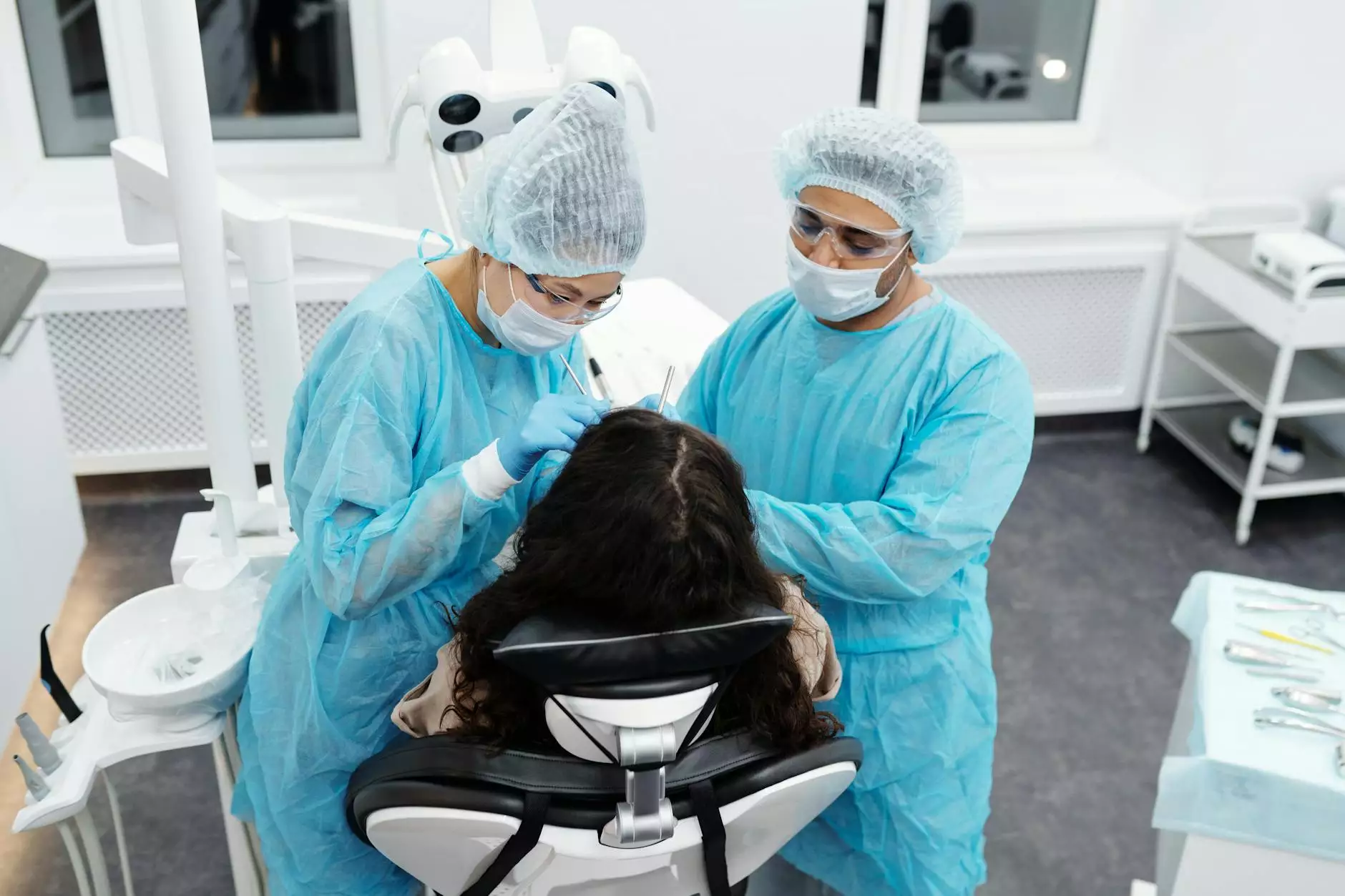Understanding Endometriosis: A Comprehensive Overview

Endometriosis is a chronic and often painful condition that affects millions of women worldwide. It occurs when tissue similar to the lining inside the uterus, known as the endometrium, begins to grow outside the uterus. This can lead to various symptoms including severe pelvic pain, painful periods, and infertility. As a crucial aspect of women's health, understanding this condition can empower individuals to seek the best doctors for endometriosis and receive the appropriate care.
What Causes Endometriosis?
The exact cause of endometriosis remains unclear, however, several theories attempt to explain its occurrence:
- Retrograde Menstruation: This theory suggests that menstrual blood flows backward through the fallopian tubes into the pelvic cavity instead of leaving the body.
- Embryonic Cell Transformation: Hormones such as estrogen may transform embryonic cells into endometrial-like cell implants during puberty.
- Immune System Disorders: Changes in the immune system may make the body unable to recognize endometrial-like tissue growing outside the uterus.
Symptoms of Endometriosis
Women experiencing endometriosis might suffer from a range of symptoms:
- Painful Periods: Known as dysmenorrhea, this condition can lead to debilitating pain, often starting before and extending a few days into menstruation.
- Pelvic Pain: Chronic pelvic pain is a common symptom, which may not necessarily correlate with the severity of the condition.
- Pain during Intercourse: Many women report pain during or after sexual intercourse, which can significantly affect relationships.
- Infertility: Endometriosis can be found in 20-40% of women who are infertile, making it an important factor to consider when seeking reproductive assistance.
- Other Symptoms: These may include painful bowel movements, painful urination, and gastrointestinal issues.
Importance of Consulting Specialists
Given the complexity of endometriosis, consulting with specialists who have extensive knowledge and experience is crucial. Finding the best doctors for endometriosis not only aids in proper diagnosis but also ensures the development of effective treatment plans tailored to individual needs.
Types of Specialists You Might Consult
Experts in the field may include:
- Gynecologists: Doctors specialized in women's reproductive health who will perform examinations and suggest treatment options.
- Reproductive Endocrinologists: Specialists dealing specifically with hormonal issues and infertility, essential for women facing challenges with conception.
- Pain Management Specialists: Doctors who focus on managing chronic pain can provide additional support to help cope with endometriosis discomfort.
How to Find the Best Doctors for Endometriosis
Searching for the best doctors for endometriosis can be daunting. Here are some tips to simplify the process:
1. Research Qualifications and Experience
Ensure that the doctors you consider have:
- Board certifications in their respective fields.
- Experience specifically in diagnosing and treating endometriosis.
- Positive patient reviews and testimonials.
2. Seek Referrals
Ask for recommendations from:
- Your primary care physician.
- Friends or family who have experienced endometriosis.
- Local support groups for women dealing with reproductive health issues.
3. Schedule Consultations
When you've identified potential doctors:
- Schedule initial consultations to assess their approach to treatment.
- Prepare a list of questions regarding their experience with endometriosis.
- Evaluate the comfort level you feel during the consultation.
Treatment Options for Endometriosis
Understanding the treatment options is essential in managing endometriosis effectively. These may include:
1. Medication
Depending on the severity of the condition, doctors may prescribe:
- NSAIDs: Nonsteroidal anti-inflammatory drugs can help alleviate pain.
- Hormonal Therapies: These can reduce or eliminate menstruation, thus alleviating symptoms.
- Gonadotropin-Releasing Hormone (GnRH) Agonists: These can induce a menopause-like state, reducing estrogen levels and minimizing endometriosis growth.
2. Surgery
For women with severe symptoms, surgical options might be necessary. Techniques include:
- Endometriosis Excision: Removing the endometrial-like tissue from the body.
- Laparoscopy: A minimally invasive procedure that allows for diagnosis and treatment.
3. Alternative Therapies
Some individuals also explore complementary therapies to manage symptoms, including:
- Aromatherapy: Using essential oils for relaxation and pain relief.
- Acupuncture: This ancient Chinese method has helped some women manage their pain effectively.
- Nutritional Therapy: Maintaining a diet rich in anti-inflammatory foods might alleviate some symptoms.
Support and Community Resources
Coping with endometriosis can be emotionally challenging. Support groups and community resources can be invaluable:
- Online Forums: Websites and groups where individuals share experiences and provide emotional support.
- Local Support Groups: Direct interactions with others facing similar challenges can foster camaraderie and support.
- Educational Workshops: Sessions provided by healthcare professionals to help individuals understand their condition better.
The Future of Endometriosis Care
As research progresses, the future holds promise for women with endometriosis. Advancements include:
- Innovative Therapies: Ongoing research into new medications targeting hormonal interactions.
- Diagnostic Tools: Improved imaging and diagnostic technologies leading to earlier and more precise diagnoses.
- Increased Awareness: Through advocacy and education, there is a broader understanding of endometriosis among medical professionals and society.
Conclusion
Finding the best doctors for endometriosis is essential for managing this complex condition. By arming yourself with knowledge, connecting with healthcare providers, and utilizing available resources, you can take proactive steps toward reclaiming your health. Remember, you are not alone, and help is available. If you suspect you have endometriosis or are experiencing painful symptoms, do not hesitate to consult a qualified specialist.
For additional support and resources, visit drvindhya.com, a valuable platform dedicated to reproductive health services, connecting you with the best healthcare professionals in the field.



